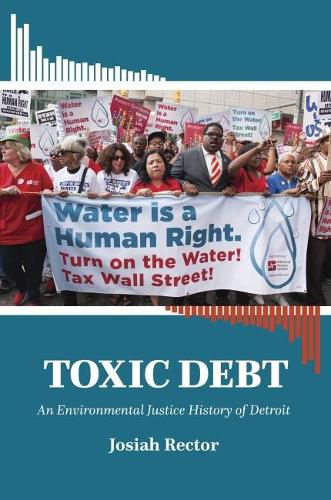Readings Newsletter
Become a Readings Member to make your shopping experience even easier.
Sign in or sign up for free!
You’re not far away from qualifying for FREE standard shipping within Australia
You’ve qualified for FREE standard shipping within Australia
The cart is loading…






From the mid-nineteenth until the mid-twentieth century, the combination of racial segregation and environmentally unregulated industrial capitalism produced outsized environmental risk exposure for poor and working-class Detroiters. In recent decades, as the auto industry abandoned Detroit, the banking and real estate industries worsened those risks with predatory loans to African American homebuyers and to an increasingly indebted city government. Alongside a wave of subprime foreclosures and cuts in welfare assistance for poor families, the state of Michigan used municipal debt to justify suspending democracy in majority-Black cities, imposing brutal austerity policies that imperiled public health. In both Detroit and nearby Flint, Emergency Financial Management turned environmental risks into disasters-and the coming of COVID-19 made matters still worse.
Toxic Debt is a history of this environmental racism and inequality. At the same time, it tells the history of Detroit’s environmental justice movement, which emerged from over a century of battles over public health, industrial pollution, and water rights in the city. It involves powerful corporate elites, revolutionary auto workers, eco-feminists, and working-class women fighting for welfare rights and environmental justice. Linking the history of racial capitalism, environmental history, and social movement history, Toxic Debt lucidly narrates the story of debt, environmental disaster, and resistance in Detroit.
$9.00 standard shipping within Australia
FREE standard shipping within Australia for orders over $100.00
Express & International shipping calculated at checkout
From the mid-nineteenth until the mid-twentieth century, the combination of racial segregation and environmentally unregulated industrial capitalism produced outsized environmental risk exposure for poor and working-class Detroiters. In recent decades, as the auto industry abandoned Detroit, the banking and real estate industries worsened those risks with predatory loans to African American homebuyers and to an increasingly indebted city government. Alongside a wave of subprime foreclosures and cuts in welfare assistance for poor families, the state of Michigan used municipal debt to justify suspending democracy in majority-Black cities, imposing brutal austerity policies that imperiled public health. In both Detroit and nearby Flint, Emergency Financial Management turned environmental risks into disasters-and the coming of COVID-19 made matters still worse.
Toxic Debt is a history of this environmental racism and inequality. At the same time, it tells the history of Detroit’s environmental justice movement, which emerged from over a century of battles over public health, industrial pollution, and water rights in the city. It involves powerful corporate elites, revolutionary auto workers, eco-feminists, and working-class women fighting for welfare rights and environmental justice. Linking the history of racial capitalism, environmental history, and social movement history, Toxic Debt lucidly narrates the story of debt, environmental disaster, and resistance in Detroit.